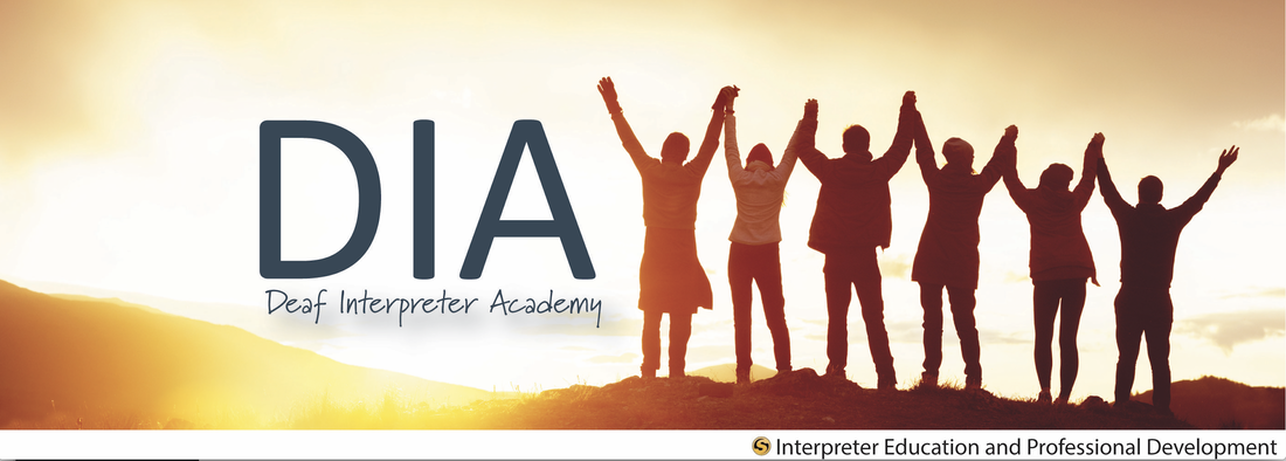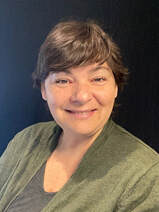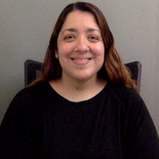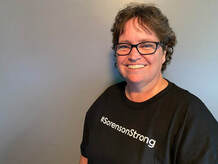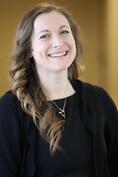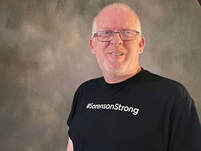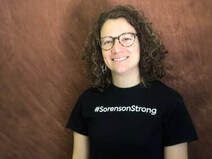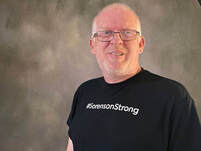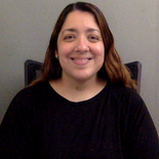June 13 - 19, 2021 Webinars
"Preparing for Mental Health Assignments: Confidence in Uncertain Settings" by Kim McClurkan
Monday, June 14th, 4:00 - 6:00 pm MDT (3:00 pm PDT, 4:00 pm MDT, 5:00 pm CDT, 6:00 pm EDT)
Interpreters are often called to mental health assignments through either VRS, Over Video Interpreting, or Community Interpreting without having any prior experience or training in this specialized field. This can lead to frustration, anxiety, and potentially dangerous results for the Deaf clients. During this workshop, we will discuss several mental health diagnoses and how they may present to an interpreter. We will also strategize ways to tackle these challenges for more favorable outcomes. The presenter will share specific interpreting approaches for working from ASL-to-English during these stress-filled situations. Participants will also engage in hands on activities, as well as explore case study discussions in collaboration with their colleagues. This webinar will focus on both ethical decision making and interpreting techniques.
Monday, June 14th, 4:00 - 6:00 pm MDT (3:00 pm PDT, 4:00 pm MDT, 5:00 pm CDT, 6:00 pm EDT)
Interpreters are often called to mental health assignments through either VRS, Over Video Interpreting, or Community Interpreting without having any prior experience or training in this specialized field. This can lead to frustration, anxiety, and potentially dangerous results for the Deaf clients. During this workshop, we will discuss several mental health diagnoses and how they may present to an interpreter. We will also strategize ways to tackle these challenges for more favorable outcomes. The presenter will share specific interpreting approaches for working from ASL-to-English during these stress-filled situations. Participants will also engage in hands on activities, as well as explore case study discussions in collaboration with their colleagues. This webinar will focus on both ethical decision making and interpreting techniques.
|
Kim McClurkan is a licensed mental health counselor based in Washington state and she also provides her counseling services in Texas remotely. In addition, She also works as a Deaf Interpreter on the side in various settings such as, but not limited to, mental health, community colleges, K-12/IEP, meetings, platform, performance, and medical. She earned a Masters in Counseling from Gallaudet University in 2010 and there she received training in sandtray as well as eye movement therapy. Her experience consists of working with children and teens, women, men, LBGQT, individuals, couples, and groups. Her specializations are anxiety, depression, ADHD, adults, college-age issues, grief and loss, mindfulness, life transitions, building coping skills, addictions, relationship issues, and stress management.
|
"What is Intersectionality?" by Jenny Gough
Tuesday, June 15th, 12:30pm-2:00pm MDT (11:30am PDT, 12:30pm MDT, 1:30pm CDT, 2:30pm EDT)
Tuesday, June 15th, 12:30pm-2:00pm MDT (11:30am PDT, 12:30pm MDT, 1:30pm CDT, 2:30pm EDT)
Social categorizations such as: ability, class, ethnicity/race, gender, nationality, religion, and sexual orientation all interconnect and overlap to create interdependent systems of discrimination and disadvantage. This working definition of intersectionality will be explored during this workshop, along with possible impacts on personal identities and social perceptions. Through introspective and interactive activities, participants will reflect on how their personal identities have formed through interconnected experiences and influences that are linked to these social categorizations. We will also learn how this has an impact on their perceptions and roles in community engagement.
|
Jenny Gough, PhD,
Interpreting experience: Jenny has been interpreting since 2018. Bio: Dr. Jenny Gough is an Indigenous Deaf woman originally from NYC. She is a teacher, researcher, Deafhood POC curriculum developer, Deafhood facilitator, and community interpreter. Favorite quote: "Make your life masterpiece; imagine no limitations on what you can be, have or do". |
"Role Space: What does it Mean and How do We Apply It?" by Bonnie Goben and Rose Vose
Tuesday, June 15th, 3:00pm-6:00pm MST (2:00pm PDT, 3:00pm MST, 4:00pm CDT, 5:00pm EDT)
As interpreters, we often feel as if we are stuck in a box or a narrow lane of what is and is not 'acceptable.' This is especially true for Deaf interpreters who are closely aligned to the Deaf community. Viewing our work through the role-space framework allows us to see our work in a different way. Lee & Llewellyn-Jones (2011) developed a three-dimensional model of interpreter involvement based on three axes. By breaking down the position an interpreter may take along each axis during an assignment, an interpreter can explore ethical ramifications and actual consequences of their choices, as well as strategies for decision-making in future assignments.
Bonnie Goben, MA, CDI
|
Rose Clifford (formerly Voss), MA
Rosalinda Clifford (formerly Voss) has been involved in the family business of interpreting for the past 19 years. Rosalinda, aka Rose, was born in California, but has been in the Pacific Northwest since 1996. She is an alumnus of Portland Community College, Portland State University, and received her MA in Interpreting Studies and Communication Equity from St. Catherine University. As a Coda, she has explored identity as it pertains to being on the border of the Deaf and hearing community, as well as ethical decision-making. She has worked at Sorenson Communications since 2009 and currently, works as a video interpreter and interpreter trainer, where she spends much of her time as an instructor for the Compass program. |
"LGBTQIA+: It's not What you sign, it's how you sign it" by Max Williamson
Wednesday, June 16th, 4:00pm - 6:00pm MST (3:00pm PDT, 4:00pm MDT, 5:00pm CDT, 6:00pm EDT)
The Deaf Lesbian, Gay, Bisexual, Transgender, Asexual, Intersexual, plus (LGBTQIA+) community has unique sign language terminology to communicate cultural nuances. Due to historic marginalization of this community, there are a great deal of triggering vocabulary choices. For this reason, it is important for the Deaf interpreting community to learn and expand their knowledge of these conventions.
This workshop will open with a tour of the Deaf LGBTQAI+ communities, sharing knowledge on vocabulary for each of the LGBTQAI+ groups. An in-depth discussion will take place on LGBTQAI+ shared cultural nuances and the strong language used in the communities. Participants will discuss and analyze strong language, which would not be appropriate for usage by non-members of LGBTQAI+ community. Attendees will be able to increase their knowledge of the LGBTQAI+ cultural terminology and history. Including discussion on how anti-LGBTQAI+ bias have manifest against the communities and how sign choices reflect this bias. We will discuss what is and is not acceptable language for use while interpreting for the LGBTQAI+ community.
Attendees will also have the opportunity to discuss and analyze gesture and vocabulary choices used by the international LGBTQAI+ community members, discussing important DO’s and DON’T’s for non-members of the community.
Wednesday, June 16th, 4:00pm - 6:00pm MST (3:00pm PDT, 4:00pm MDT, 5:00pm CDT, 6:00pm EDT)
The Deaf Lesbian, Gay, Bisexual, Transgender, Asexual, Intersexual, plus (LGBTQIA+) community has unique sign language terminology to communicate cultural nuances. Due to historic marginalization of this community, there are a great deal of triggering vocabulary choices. For this reason, it is important for the Deaf interpreting community to learn and expand their knowledge of these conventions.
This workshop will open with a tour of the Deaf LGBTQAI+ communities, sharing knowledge on vocabulary for each of the LGBTQAI+ groups. An in-depth discussion will take place on LGBTQAI+ shared cultural nuances and the strong language used in the communities. Participants will discuss and analyze strong language, which would not be appropriate for usage by non-members of LGBTQAI+ community. Attendees will be able to increase their knowledge of the LGBTQAI+ cultural terminology and history. Including discussion on how anti-LGBTQAI+ bias have manifest against the communities and how sign choices reflect this bias. We will discuss what is and is not acceptable language for use while interpreting for the LGBTQAI+ community.
Attendees will also have the opportunity to discuss and analyze gesture and vocabulary choices used by the international LGBTQAI+ community members, discussing important DO’s and DON’T’s for non-members of the community.
|
Max Williamson MA, DI, ASLTA-Certified
Interpreting experience: Interpreting since 2006 and working with DeafBlind since 2000. Bio: Max has been working teaching ASL and Interpreting classes at different colleges and universities and is now working at Sorenson as an Interpreter Education Specialist sine 2016 Favorite quote: "Keep smiling because life is a beautiful thing and there's so much to smile about." Marilyn Monroe |
"Stranger in a Strange Land: Interpreting for Non-Native Deaf and HoH Consumers" by Johanna Katz-Searls
Thursday, June 17th, 3:00pm-5:00pm MDT (2:00 pm PDT, 3:00pm MDT, 4:00 pm CDT, 5:00 pm EDT)
The United States is a leading country for accessibility and education for Deaf and Hard of Hearing people, with the passage of the ADA (American with Disabilities Act) and established collegiate programs for Deaf and HoH such as Gallaudet University. This is one of many reasons why Deaf and HoH individuals immigrate to the US. However, many of these individuals may arrive in the United States with very little personal experience with interpretation services. This workshop will aim to provide participants with a better understanding of the cultural and linguistic differences that immigrants have upon arriving to the U.S. Participants will have an opportunity to ask questions and learn about common life experiences of immigrant and refugee Deaf and hard of hearing consumer, as well as how to interpret effectively for these individuals both culturally and linguistically.
Thursday, June 17th, 3:00pm-5:00pm MDT (2:00 pm PDT, 3:00pm MDT, 4:00 pm CDT, 5:00 pm EDT)
The United States is a leading country for accessibility and education for Deaf and Hard of Hearing people, with the passage of the ADA (American with Disabilities Act) and established collegiate programs for Deaf and HoH such as Gallaudet University. This is one of many reasons why Deaf and HoH individuals immigrate to the US. However, many of these individuals may arrive in the United States with very little personal experience with interpretation services. This workshop will aim to provide participants with a better understanding of the cultural and linguistic differences that immigrants have upon arriving to the U.S. Participants will have an opportunity to ask questions and learn about common life experiences of immigrant and refugee Deaf and hard of hearing consumer, as well as how to interpret effectively for these individuals both culturally and linguistically.
|
Johanna Katz-Searls MA, DI
Interpreting experience: Johanna has been working professionally as a Deaf Interpreter since 2018. Bio: Johanna is a native from Buenos Aires, Argentina and often works with immigrants in many settings. She also interprets outside of country for international events. Favorite quote: "If not me, then who? If not now, then when?" Hillel |
"Peeling the Onion: Engaging Diversity, Equity & Inclusion by Max Williamson and Jenny Gough
Saturday, June 19th, 10:00am to 12:00 pm MDT (9:00am PDT, 10:00am MST, 11:00am CDT, 12:00pm EDT)
In this workshop we will explore implicit bias and promoting equity. Biases, attitudes, and stereotypes all can affect our understanding, actions, and decisions without us being consciously aware, and go on to influence and create inequalities in our systems. Through discussion and activities, participants will learn to become more culturally responsive and promote equity in a society that is becoming more racially and ethnically diverse. Participants will examine challenges and work on unlearning implicit bias, enabling them to adopt an equity-centered approach for serving individuals and communities from various racially, ethnically, and socioeconomically diverse backgrounds.
Saturday, June 19th, 10:00am to 12:00 pm MDT (9:00am PDT, 10:00am MST, 11:00am CDT, 12:00pm EDT)
In this workshop we will explore implicit bias and promoting equity. Biases, attitudes, and stereotypes all can affect our understanding, actions, and decisions without us being consciously aware, and go on to influence and create inequalities in our systems. Through discussion and activities, participants will learn to become more culturally responsive and promote equity in a society that is becoming more racially and ethnically diverse. Participants will examine challenges and work on unlearning implicit bias, enabling them to adopt an equity-centered approach for serving individuals and communities from various racially, ethnically, and socioeconomically diverse backgrounds.
|
Max Williamson MA, DI, ASLTA-certified
Interpreting experience: Interpreting since 2006 and working with DeafBlind since 2000. Bio: Max has been working teaching ASL and Interpreting classes at different colleges and universities and is now working at Sorenson as an Interpreter Education Specialist sine 2016 Favorite quote: "Keep smiling because life is a beautiful thing and there's so much to smile about." Marilyn Monroe |
Jenny Gough, PhD,
Interpreting experience: Jenny has been interpreting since 2018. Bio: Dr. Jenny Gough is an Indigenous Deaf woman originally from NYC. She is a teacher, researcher, Deafhood POC curriculum developer, Deafhood facilitator, and community interpreter. Favorite quote: "Make your life masterpiece; imagine no limitations on what you can be, have or do". |

